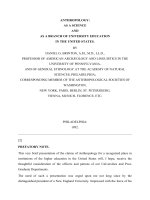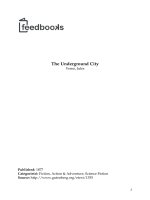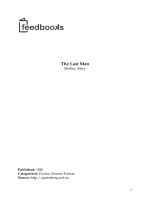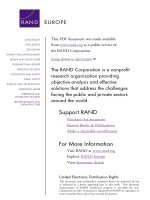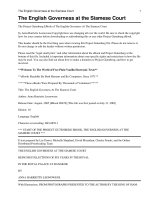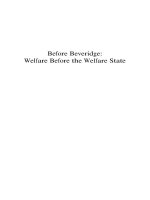The Calvo Clause pptx
Bạn đang xem bản rút gọn của tài liệu. Xem và tải ngay bản đầy đủ của tài liệu tại đây (16.84 MB, 340 trang )
THE
CALVO
CLAUSE
This page intentionally left blank
The
Calvo Clause
A
PROBLEM
OF
INTER-AMERICAN
AND
INTERNATIONAL
LAW AND
DIPLOMACY
by
Donald
R.
Shea
UNIVERSITY
OF
MINNESOTA PRESS
Minneapolis
©
Copyright
1955
by the
UNIVERSITY
OF
MINNESOTA
All
rights
reserved.
No
part
of
this
book
may be
reproduced
in
any
form
without
the
written permission
of the
pub–
lisher. Permission
is
hereby granted
to
reviewers
to
quote
brief
passages
in a
review
to be
printed
in a
magazine
or
newspaper.
PRINTED
AT THE
LUND
PRESS, INC., MINNEAPOLI
S
Library
o/
Congress Catalog
Card
Number:
55-9371
PUBLISHED
IN
GREAT
BRITAIN,
INDIA,
AND
PAKISTAN
BY
GEOFFREY
CUMBERLEGE: OXFORD UNIVERSITY PRESS, LONDON, BOMBAY,
AND
KARACHI
To
CHARLES
H.
McLAUGHLIN
This page intentionally left blank
Preface
PERHAPS
the
greatest asset
of the
United
States
in the
present
condition
of
tension
in
international relations
is its
strong
na-
tional economy.
It is
this economic strength which,
in
large meas-
ure,
is
responsible
for the
rise
of
this nation
to a
position
of
tre-
mendous power
and
influence,
and for the
development
of an
unrivaled standard
of
living
for its
citizenry. Economically power-
ful
though
the
United
States
may be,
however,
it is not
self-suffi-
cient.
The
world
is, in
fact,
economically interdependent.
The
continued economic prosperity
of
America depends
on
that
of the
entire
world, and, reciprocally,
the
economic
prosperity
of the
world
depends
to a
considerable extent
on
that
of the
United
States.
Of
tremendous importance
to
this economic strength
are
America's commercial
and
investment relations with
the
rest
of
the
world.
The
United
States
has now
become
the
dominant
commercial
and
investor power.
Direct
private investment
in
foreign
countries
has
risen
from
$3
billion
in
1914
to $8
billion
in
1943
to
well over
$16
billion
at the end of
1953. Along with
this investment expansion,
the
number
of
Americans living
abroad
has
risen
from
13,239
in
1939
to an
estimated
more
than
500,000
in
1952.
A
substantial portion
of
these commercial
and
investment
re-
lations
are
with
our
neighbors
to the
south,
the
Latin
American
republics.
The
importance
of
this region
to
American
foreign
in-
vestment
is
shown
by the
fact
that
40 per
cent
of the
total
direct
private investment abroad
is in
Latin America. This investment
vii
The
Calvo
Clause
in
Latin America
has
been increasing since World
War II at the
rate
of
approximately
$440
million
per
year,
and
there
is
every
indication
that
this increase
will
continue.
Latin
America
is a
region
of
great economic potential,
and the
rate
of its
industrial
progress
in the
postwar period
has
been little short
of
phenome-
nal.
As
this development continues,
so
also
will
the
importance
of
this region increase
in the
international economy.
Although
the
economic relations between
the
Latin
American
republics
and the
United
States
have been mutually advan-
tageous and,
on the
whole,
quite
harmonious,
they
have
also
produced
a
number
of
vexatious problems. Some
of the
most
controversial
of
these
are
involved
in the
relations
between
the
Latin American governments
and the
increasingly large num-
ber of
aliens,
many
of
them
United
States
citizens,
who
reside
in
their territory
in
order
to
pursue business interests
and aid
in
the
development
of
natural resources.
The
presence
of a
num-
ber of
foreign
citizens,
who
possess
the
necessary capital
and
know-how,
is
essential
for the
advancement
of the
underdevel-
oped region,
but it
also
has not
infrequently resulted
in
serious
conflicts
of
interest between
the
Latin American
states
and the
investor powers over
the
treatment
that
is
accorded
to
resident
aliens. Because
of
this tension
and
conflict
of
interests, interna-
tional law,
the
body
of
principles
that
govern relations
on the
international level,
has
evolved certain rules concerning
the
status,
rights,
and
duties
of
resident aliens.
One of the
most contentious issues
in
this area
of
international
law
is the
validity
and
effectiveness
of the
Calvo Clause.
This
concept
has
produced sharp
and
seemingly irreconcilable
differ-
ences
of
opinion
in
inter-American
and
international
diplomacy
and
jurisprudence. Operating
on the
belief
that
the
utility
and
effectiveness
of the
principles
of
international
law are
closely
related
to the
preciseness
of
their
definition,
I
shall
attempt
in
this
study
to
determine
as
precisely
as
possible
the
rule
of law
on
the
Calvo Clause
in
contemporary international law.
I
wish
to
express
to
Professor Charles
H.
McLaughlin
of the
University
of
Minnesota,
to
whom
this book
is
dedicated,
my
viii
Preface
profound
gratitude
for his
many valuable suggestions
and his
penetrating criticism. Professor McLaughlin,
who by his
schol-
arly
and
stimulating teaching
first
enkindled
my
interest
in the
field
of
international law, read
the
entire manuscript,
and
what-
ever
merit this book
may
have
is due in
large measure
to his
wise
and
incisive counsel, which
was
always available
and
very
frequently
used.
I
also
wish
to
thank Professor Asher
N.
Christen-
sen
of the
University
of
Minnesota,
who
originally suggested
the
desirability
of
further
inquiry into
the
question
of the
validity
of
the
Calvo Clause,
and my
colleague Professor Charles
D.
Goif
of
the
University
of
Wisconsin (Milwaukee Extension)
for his
enthusiastic
encouragement
and
readily available advice.
I am
also indebted
to Dr. E.
Taylor
Parks
and
Stanley
D.
Metzger
of
the
Department
of
State
who
furnished
me
with much invalu-
able information,
to the
United
States
ambassadors
and
their
staffs
in the
various Latin American republics
who
expended
considerable
time
and
effort
in
assisting
me in the
determination
of
the
current utilization
of the
Calvo Clause,
and to the
various
foreign
offices
which
supplied
me
with current
definitions
of po-
sition
on the
Calvo Clause.
I am
happy
to
acknowledge
a
very special debt
of
gratitude
to
Elsa Jaeck, librarian
at the
University
of
Wisconsin (Mil-
waukee
Extension),
who so
very graciously
and
competently
assisted
me in the
tedious task
of
locating
and
securing innumer-
able diplomatic
and
legal documents.
I
also received very
courte-
ous
service
from
the
staff
of the
Reference
and
Documents
Division
of the
Milwaukee Public Library
and the
interlibrary
loan
divisions
of the
major
American libraries, especially those
of
the
Library
of
Congress,
the
Department
of
State,
and the
Columbus
Memorial
Library.
I
wish
to
thank Doris
and
Henry Cyrak
for
proofreading
the
entire
manuscript
and
offering
valuable
stylistic
suggestions,
and
Mary
Jo
Schoofs
for
very
efficient
stenographic service.
I am
indebted
to the
staff
members
of the
University
of
Minnesota
Press
for
their
skillful
assistance.
Last,
but
most certainly
not
least,
I
wish
to
record
my
profound
appreciation
to my
wife,
ix
The
Calvo Clause
Patricia,
who
laboriously
and
competently typed
the
entire
manuscript,
offered
many
valuable
suggestions,
and was the
source
of
continual encouragement
and
inspiration.
Although
this
book
would
not
have been possible
if it
were
not for the
assistance
of
those
mentioned above
and the
many
more who,
of
necessity, must remain unnamed,
I
alone,
of
course,
am
responsible
for any
errors
of
omission
or
commission.
D. R. S.
Milwaukee, Wisconsin
June
1,
1955
x
List
of
Abbreviations
AJIL: American Journal
of
International
Law
APSR:
American Political Science
Review
BYIL:
British
Yearbook
of
International
Law
Decisions
and
Opinions
of the
Commissioners: Decisions
and
Opinions
of
the
Commissioners
in
Accordance
with
the
Convention
of
Novem-
ber
19,
1926, between Great
Britain
and the
United Mexican
States
Further Decisions
and
Opinions
of the
Commissioners: Further Deci-
sions
and
Opinions
of the
Commissioners
in
Accordance
with
the
Conventions
of
November
19,
1926,
and
December
5,
1930, between
Great
Britain
and the
United Mexican
States.
Subsequent
to
Febru-
ary
15,1930
Opinions
of
Commissioners,
I:
Opinions
of
Commissioners under
the
Convention Concluded September
8,1923,
between
the
United
States
and
Mexico. February
4.,
1926
to
July 23,1927
Opinions
of
Commissioners,
II:
Opinions
of
Commissioners under
the
Convention Concluded September
8,
1923,
as
extended
by the
Con-
vention
Signed
August
16,
1927, between
the
United
States
and
Mex-
ico. September
26,1928
to May
17,1929
Opinions
of
Commissioners,
HI:
Opinions
of
Commissioners under
the
Convention Concluded September
8,1923,
as
Extended
by
Subsequent
Conventions, between
the
United
States
and
Mexico. October, 1930
to
July, 1931
Recueil
des
Cours: Recueil
des
Cours
de
l'Academie
de
droit interna-
tional
de la
Haye
RDDI:
Revista
de
derecho internacional
(Havana)
RDI:
Revue
de
droit international
(A. de
Lapradelle)
xi
The
Calvo
Clause
RDILC:
Revue
de
droit international
et de
législation comparee
RGDIP:
Revue
generale
de
droit international public
RPDDl:
Revista Peruana
de
derecho
internacional
U.S.
For. Rel.:
Papers
Relating
to the
Foreign Relations
of the
United
States
U.S.
Stat.
L.:
United
States Statutes-at-Large series
U.S.
Treaties:
United
States Treaties
and
Other International Agree-
ments series
xii
Table
of
Cases
American
Electric: analyzed,
174-175;
cited, 192n
Anglo-Iranian
Oil: cited, 128n
Antofagasta:
analyzed,
152-154;
cited,
192n
Baumblatt: cited, 123n
Beales,
Nobles,
and
Garrison:
cited,
122n, 133n,
137
Blair:
cited, 239n
Blixhe
et
Deblon:
cited,
123n
Burke Construction Company: cited,
203
Central
Costa Rica Petroleum Company: analyzed,
188—191;
cited, 193n
Ciocci
Gaetano: cited, 123n
Colombian-Peruvian
Asylum: cited, 117n, 118n
Coro
and La
Vela
Railway: analyzed,
165-166;
cited, 31n, 183n, 192n
Day
and
Garrison:
analyzed,
133-136;
cited, 122n, 140, 191n
Del
Genovese: analyzed,
166-167;
cited, 183n, 192n
Dredging:
analyzed,
194-230;
cited, 28n, 29n, 30n,
40,
41n,
55,
107n,
11 In,
120, 124n,
231-256
passim, 259, 263, 265n,
286
El Oro
Mining
and
Railway Company: analyzed,
251-253;
cited, 256n
Emilia
Maria Viuda
de
Giovanni Mantellero:
cited,
284n
Flannagan:
analyzed,
136-140;
cited, 133, 144, 169, 172, 191n
French
Company
of
Venezuelan Railroads: analyzed,
158-161;
cited,
193n
Goulley:
cited, 123n
Illinois
Central Railroad:
cited,
215n
International
Fisheries:
analyzed,
231-240;
cited, 29n, 36n,
55,
56n, 196,
212n, 214n, 217n, 227n, 245, 255n, 259n, 265n
Interoceanic
Railway: analyzed, 249-251; cited, 255n, 259n
Kunhardt: analyzed,
167-168;
cited, 183n, 191n, 192n
La
Guaira:
analyzed, 167; cited, 183n, 193n
Lena
Goldfields:
cited, 129n
McMurdo:
analyzed,
154-156;
cited, 192n
MacNeil:
analyzed, 247-249; cited, 255n,
263
xiii
The
Calvo
Clause
Martini:
analyzed,
161-163;
cited,
192n
Mexican
Union
Railway: analyzed,
240-247;
cited, 30n,
219-220,
248-
255
passim,
259n, 262,
263
Mittigan:
analyzed,
125-129;
cited, 28n, 144n, 192n
Nitrate Railways Company: analyzed,
148-152;
cited, 29n, 153, 154,
191n, 221,
263
North
and
South American
Construction
Company: analyzed,
141-145;
cited, 30n, 192n
Orinoco
Steamship Company: analyzed,
175-179;
cited, 183, 184, 191n
Pinson:
cited,
213n
Pitol:
analyzed,
254-255;
cited, 255n, 259n
Rogerio:
analyzed,
185-187;
cited, 193n
Royal
Bank
of
Canada:
analyzed,
188-191;
cited, 193n
Rudloff:
analyzed,
171-174;
cited, 182, 184, 192n
Salvador
Commercial Company: cited, 123n
Selwyn:
analyzed,
163-165;
cited, 173n, 192n
Stirling:
analyzed,
145-148;
cited,
152, 153, 154, 192n
Tattler:
cited, 284n
Tehuantepec:
analyzed,
130-132;
cited, 28n, 191n
Thurston:
cited, 123n
'
Turnbull:
analyzed,
179-182;
cited, 29n, 183, 184, 191n
Veracruz
Railway: analyzed,
253-254;
cited, 255n, 259n
Vulkan
Werke:
cited, 123n
Woodruff: analyzed, 136-140, 169-171; cited, 133, 174, 183, 184, 191n
XIV
Table
of
Contents
List
of
Abbreviations
xi
Table
of
Cases xiii
i
Introduction
3
ii
The
Origins
of the
Calvo
Clause
9
in
Governmental Attitudes toward
the
Calvo Clause
Controversy
33
iv
The
Calvo Clause
before
Inter-American
Conferences
62
v
The
Legal Issues Involved
106
vi
Arbitral Decisions Involving
the
Calvo Clause
up
to
1926
121
vn
The
North American Dredging Company Case
194
vin
Arbitral Decisions Involving
the
Calvo Clause
since
1926
231
ix
The
Future
of the
Calvo Clause
258
Bibliography
291
Index
307
xv
This page intentionally left blank
THE
CALVO
CLAUSE
This page intentionally left blank
Introduction
INTERNATIONAL
law, like
all
systems
of
law, evolves
to
meet con-
flicts
of
interest.
In few
areas
of
relations
on the
international
level
is
there
a
more real clash
of
interests than
in the
relations
between
the
state
and
citizens
of
foreign
states.
Although
the in-
ternational
law
governing
the
settlement
of
conflicts
of
interest
in
this
area
is one of the
most highly developed branches
of
that
law,
it is,
paradoxically, also
one of the
most highly controversial.
When
a
citizen
of a
state
resides
and
does business
in a
foreign
country,
he
becomes subject
to a
conflict
of
jurisdictions. Under
the
rules
of
international law,
he is
considered
to be
subject
to
the
territorial jurisdiction
of the
state
in
which
he
resides.
This
means
that
the
alien
owes
a
temporary obedience
to the
state
of
residence.
He is
therefore governed
by the
local civil, criminal,
and
commercial codes,
and
must normally
turn
to the
local judi-
cial processes
to
seek redress
for any
injury
to his
person
or
prop-
erty.
Furthermore,
a
state
is
held
to
have even wider power over
an
alien
who
more
or
less permanently makes
his
residence with-
in
its
territory,
to the
extent
that
the
state
can,
for
example,
make
the
alien
pay
taxes,
and in
case
of
need
can
even compel
him, under
the
same conditions
as
citizens,
to
serve
in the
local
police
and the
local
fire
brigade
for the
purposes
of
maintaining
public safety.
In
turn
the
alien
is
considered, under
the
rules
of
international law,
to be
possessed
of the
procedural
and
substan-
tive
rights
of
citizens, with
the
exception
of
certain special civil
and
political rights
and
privileges
that
may be
reserved
to the
local citizenry.
That
is, the law of
nations would compel every
3
I
The
Calvo
Clause
state
to
grant
to
aliens
at
least
equality
before
the law
with
its
own
citizens
as far as
safety
of
person
and
property
is
concerned,
but
would
not
compel
a
state
to
grant
the
alien equality
in
vot-
ing
and in
holding public
office,
or in the
practice
of the
profes-
sions.
If
this were
the
complete situation
in
regard
to a
citizen
of
one
state
residing
in the
territory
of
another, then
the
position
of
the
alien would
not be
particularly complicated
or
controver-
sial,
for his
rights
and
obligations would
be
determined solely
in
accordance with
the
laws
of the
state
of
residence. However,
in-
ternational
law
also holds
that,
while
the
alien
is
subject
to the
territorial
jurisdiction
of the
foreign
state,
he is
also subject
to
the
personal jurisdiction
of the
state
of
origin. This means,
for
example,
that
the
alien
is
still
subject
to the
taxation
and
treason
laws
of his
home
state.
It
also means
that
the
alien remains
under
the
protection
of his
home
state.
By a
customary rule
of
international law, every state
has the
right
to
protect
its
citizen
wherever
he may be if the
treatment accorded
him
does
not
measure
up to
what
are
considered
to be
internationally recog-
nized
standards.
1
It is
thus
apparent
that
the
presence
of the
alien
can be the
cause
of a
great deal
of
conflict
and
controversy between
the
state
of
origin
and the
state
of
residence.
This
has
been
particu-
larly
true
in
situations involving
the
underdeveloped regions
of
the
world where
the
legal systems
and
remedial processes were
not
considered
to
measure
up to
"civilized" standards.
In re-
sponse
to
pressures brought
to
bear
by the
resident aliens
and
their
associated business interests,
the
major investor powers
sought
to
institutionalize procedures whereby their citizens would
not
suffer
by
being subjected
to
inferior
standards
of law and
justice.
In
some
of the
underdeveloped
areas
of the
world, such
as
1
For a
brief
analysis
of the
rights
and
duties
of
aliens, with references
and
docu-
mentation,
see L.
Oppenheim,
International Law,
I
(7th
ed. by H.
Lauterpacht,
London,
1948),
pp.
619-630.
These general introductory comments
on the
princi-
ples
of
international
law
that
govern
the
status
of
aliens
will
be
examined
in
more
detail
in the
course
of
this analysis.
4
Introduction
Asia,
the
Middle
East,
and
parts
of
Africa,
the
pressures
thus
created
led to the
institution
of the
system
of
extraterritorial
jurisdiction, whereby
the
alien, upon entering
a
country
in
which
the
legal institutions
and
laws were considered
to be
inferior
to
or
radically
different
from
those
that
existed
in the
Occidental
states, would,
by
treaty
stipulation,
be
removed
from
the
terri-
torial jurisdiction
of the
state
of
residence
and
would remain
under
the
jurisdiction
of the
home
state,
whose consuls would
exercise
this jurisdiction,
try
civil
and
criminal cases,
and
deter-
mine
rights
in
accordance with
their
own
municipal
law.
2
In the
Western Hemisphere, however,
partly
because
of the
sensitive-
ness
of
Latin American
states
to the
prerogatives
of
sovereignty,
partly because Latin American legal
and
political systems were
of
European origin,
and
partly because
of the
better
bargaining
position
of the
states
due to the
adherence
of the
United
States
to the
Monroe Doctrine,
the
principle
of
extraterritoriality
was
never established.
In
this underdeveloped region, protection
of
the
rights
and
interests
of
aliens
was
sought through
the
utiliza-
tion
of
procedures
that
came
to be
known
as the
institution
of
diplomatic protection. This provided
that
citizens abroad could
appeal
to
their
own
governments
for
protection
if,
after
an in-
jury
had
been committed
to
their persons
or
property, satisfac-
tion
was not
obtained through
the
remedial processes available
in
the
foreign
state.
The
Latin American republics,
fearful
that
this institution
of
diplomatic protection might
be
employed
as a
tool
of
economic
or
political imperialism, have employed many ingenious legal
de-
vices designed
to
prevent
the
alien
from
appealing
to his
gov-
ernment
for
diplomatic protection.
The
most
successful
and the
most widely used technique
has
been
to
require
the
alien
to
agree,
as
part
of any
contract concluded with
a
Latin
American
government,
to the
so-called
Calvo
Clause
by
which
the
alien
2
With
the
political advancement
of
these underdeveloped countries
in
Asia,
the
Middle
East,
and
Africa,
extraterritorial privileges have
now
been abandoned.
For
an
excellent
analysis
on the
subject
of
extraterritoriality,
and an
extensive bibliog-
raphy,
see C. C.
Hyde, International
Law
Chiefly
as
Interpreted
and
Applied
by
the
United
States
(3
vols.,
Boston,
1947),
II, pp.
849-871.
5
The
Calvo
Clause
agrees
to
waive
the
right
of
diplomatic protection
and to
resort
for
redress
of any
grievances exclusively
to the
local judicial rem-
edies.
The
validity
of the
Calvo Clause
has
become
one of the
most controversial questions
of
contemporary international
di-
plomacy
and
jurisprudence. Perhaps
no
other problem
in
inter-
national
law has
been
so
indecisively arbitrated
before
interna-
tional tribunals
or as
vehemently disputed among nations.
This
appears even more remarkable
in
view
of the
nearly unanimous
concurrence
of the
leading publicists
of the
United
States
and
Europe regarding this problem. Certainly
any
subject
so
theo-
retically positive,
and yet so
practically indecisive provides
a
fertile
field for
investigation
and
research.
Moreover, when
in-
vestigation
of the
decisional
law
appears
to
confirm
conclusions
that
differ
from
the
opinions
of the
majority
of
publicists,
the
subject
becomes
of
even greater importance.
The
present volume
is the
result
of
such
an
investigation.
It is
true
that
the
Calvo Clause controversy
by
itself
is but a
minute phase
of the
interrelations
of
states;
however,
the
Calvo
Clause
dispute
is
closely linked with
the
general problems
in-
volved
in the
diplomatic protection
of
citizens abroad
and
with
the
gradual evolution
of
international
law
toward recognizing
the
rights
and
duties
of the
individual
as
well
as of the
state.
Since international
law is not
static,
but
evolves with
the
chang-
ing
environmental conditions
of the
world community, care
will
be
taken here
to
analyze
the
development
of the
Calvo Clause
against this changing background. Conclusions regarding
the
validity
of the
Clause
that
might have been acceptable several
decades
ago
will
have
to be
carefully
re-examined
in
order
to
determine whether they
are
accurately
reflective
of
present-
day
circumstances.
The
disagreement over
the
validity
of the
Calvo Clause
is not
a
result
of
lack
of
careful
consideration.
It has
been
the
subject
of
a
great deal
of
diplomatic correspondence
as
well
as an
issue
in
more
than
thirty
cases
before
international arbitral tribunals.
Nearly
all the
general
treatises
on
international law,
as
well
as
all the
standard treatises
on the
international responsibility
of
6
Introduction
states
for
injuries
to
aliens, deal
in
part
with this concept.
Nu-
merous articles
in
leading legal periodicals have discussed
its
various
aspects, although specialized studies
of
this
problem have
appeared
only
in
Latin
America.
The
Calvo
Clause controversy
is not
solely
one of
law, how-
ever,
but
also
one of
politics.
It has
played
an
important role
in
the
political relations
of the
Americas. While
the
approach here
will
be
primarily legal,
a
complete understanding
of the
problem
necessitates
an
examination
of the
political
considerations
in-
volved. Political conditions have
had an
important bearing
on
the
inception
and
development
of
this concept.
In the
present approach, emphasis
will
be
placed
on the
prob-
lem
as it has
developed
in the
Americas,
for the
Calvo Clause
controversy
has
been almost unique
to
this
hemisphere, with
the
United
States
the
chief protagonist
of the
opposition
and the
Latin
American countries
the
chief
defenders
of the
concept.
I
believe
that
the
Latin
American position
has
never been ade-
quately presented
in
English
and
therefore will
attempt
to do so
here. Necessarily
I
shall rely primarily
on
Latin
American pub-
lications.
The
primary purpose
of
this analysis, however,
will
be to de-
termine what
the
precise rule
of law is on the
Calvo Clause.
A
survey
of the
writings
of the
leading publicists would indicate
that
such
an
inquiry
is
unnecessary,
for
there
is
general agree-
ment
on the
invalidity
of the
Calvo Clause
as a bar to
diplomatic
interposition.
But
relying solely
on the
writings
of the
publicists
is
apt to be
misleading.
The
attitudes
of the
states
and the
decisions
of
the
international tribunals must
be
considered carefully,
for the
opinions
of
writers,
no
matter
how
authoritative,
may not
corre-
spond with
the
practice
of
states
or the
rulings
of the
courts.
It
is
my
contention
that
the
actual rule
of law on the
Calvo Clause
as
determined primarily
by
state
practice
and
court rulings does
not,
in
fact, correspond with
the
views expressed
by the
majority
of
publicists.
In
order
to
determine
this
rule
of
law, therefore,
attention
will
be
devoted
to all
three
chief
law-determining
agencies—govern-
7
The
Ccdvo
Clause
ments,
courts,
and
publicists.
3
Chapters
III and IV
will
deal with
the
official
position
of the
leading nations
of the
world, paying
particular attention
to the
attitude
of the
American
states
which
have been obliged
to
deal with
this
problem
the
most. Chapters
VI,
VII,
and
VIII
will consider
the
decisions
of
international
tribunals
that
have involved
the
Calvo
Clause. Chapter
V
will
deal with
the
opinions
of the
leading publicists, although,
of
necessity, their opinions
will
also
be
interspersed throughout
the
analysis.
This
particular
approach,
it
seems
to me,
holds
the
greatest promise
for
penetrating
the
confusion,
contradiction,
and
disagreement
that
have characterized
so
many
treatments
of
this
subject.
3
Georg
Schwarzenberger,
International
Law as
Applied
by
International Courts
and
Tribunals
(London,
1945),
pp.
xlvii,
8ff.
8


